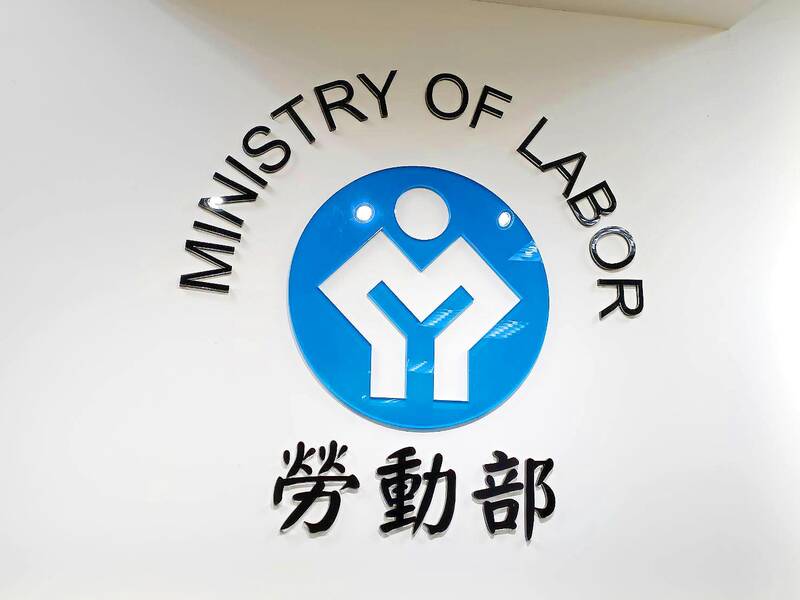The planned introduction of migrant workers from India to Taiwan is to include a government-to-government (G2G) recruitment scheme, according to a memorandum of understanding (MOU) between the two countries which was made public on Wednesday.
The MOU, which was initially signed on Feb. 16, states that the two sides would push forward a G2G recruitment scheme in addition to “existing recruitment channels.”
The two sides are to work to increase the number of sectors eligible for the G2G recruitment scheme pursuant to the laws and regulations of both nations, as well as establish a dedicated matchmaking unit for employers and job seekers, the MOU says.

Photo: Taipei Times
It says Taiwan has the right to determine how many Indian workers it would recruit and which sectors they would be allowed to work in.
Taiwanese labor rights and migrant worker groups have called for the recruitment of Indian workers to be carried out through a G2G program rather than the widely criticized brokerage system, which has seen many migrant workers charged hefty placement fees and monthly service fees by brokerage firms.
In addition, the MOU states that the two sides would work to simplify the paperwork involved in the recruitment process.
Priority would be given to workers who serve out their contracts and are looking to be rehired, the MOU says.
The Ministry of Labor delivered the MOU to the legislature on Wednesday after the Cabinet was notified of the document a day earlier.
Workforce Development Agency Cross-Border Workforce Affairs Center head Paul Su (蘇裕國) said that the agency hopes to hold a series of meetings to consult with academics, experts and relevant groups over any necessary understanding, preparatory work and accompanying measures associated with the introduction of Indian workers to the nation.
In this way, the agency hopes wider society would engage in discussions on the plan to recruit Indian workers, Su said.
The MOU provides a framework for the plan, but a formal announcement of India as a source of migrant workers would be made only after relevant regulations and protocols are put into place, he said.

The Taipei Summer Festival is to begin tomorrow at Dadaocheng Wharf (大稻埕), featuring four themed firework shows and five live music performances throughout the month, the Taipei Department of Information and Tourism said today. The festival in the city’s Datong District (大同) is to run until Aug. 30, holding firework displays on Wednesdays and the final Saturday of the event. The first show is scheduled for tomorrow, followed by Aug. 13, 20 and 30. To celebrate the 30th anniversary of Disney Pixar's movie Toy Story, the festival has partnered with Walt Disney Co (Taiwan) to host a special themed area on

Aftershocks from a magnitude 6.2 earthquake that struck off Yilan County at 3:45pm yesterday could reach a magnitude of 5 to 5.5, the Central Weather Administration (CWA) said. Seismological Center technical officer Chiu Chun-ta (邱俊達) told a news conference that the epicenter of the temblor was more than 100km from Taiwan. Although predicted to measure between magnitude 5 and 5.5, the aftershocks would reach an intensity of 1 on Taiwan’s 7-tier scale, which gauges the actual effect of an earthquake, he said. The earthquake lasted longer in Taipei because the city is in a basin, he said. The quake’s epicenter was about 128.9km east-southeast

BE CAREFUL: The virus rarely causes severe illness or death, but newborns, older people and those with medical conditions are at risk of more severe illness As more than 7,000 cases of chikungunya fever have been reported in China’s Guangdong Province this year, including 2,892 new cases last week, the Centers for Disease Control (CDC) yesterday said it is monitoring the situation and considering raising the travel notice level, which might be announced today. The CDC issued a level 1 travel notice, or “watch,” for Guangdong Province on July 22, citing an outbreak in Foshan, a manufacturing hub in the south of the province, that was reported early last month. Between July 27 and Saturday, the province reported 2,892 new cases of chikungunya, reaching a total of 7,716

STAY VIGILANT: People should reduce the risk of chronic liver inflammation by avoiding excessive alcohol consumption, smoking and eating pickled foods, the physician said A doctor last week urged people to look for five key warning signs of acute liver failure after popular producer-turned-entertainer Shen Yu-lin (沈玉琳) was reportedly admitted to an intensive care unit for fulminant hepatitis. Fulminant hepatitis is the rapid and massive death of liver cells, impairing the organ’s detoxification, metabolic, protein synthesis and bile production functions, which if left untreated has a mortality rate as high as 80 percent, according to the Web site of Advancing Clinical Treatment of Liver Disease, an international organization focused on liver disease prevention and treatment. People with hepatitis B or C are at higher risk of